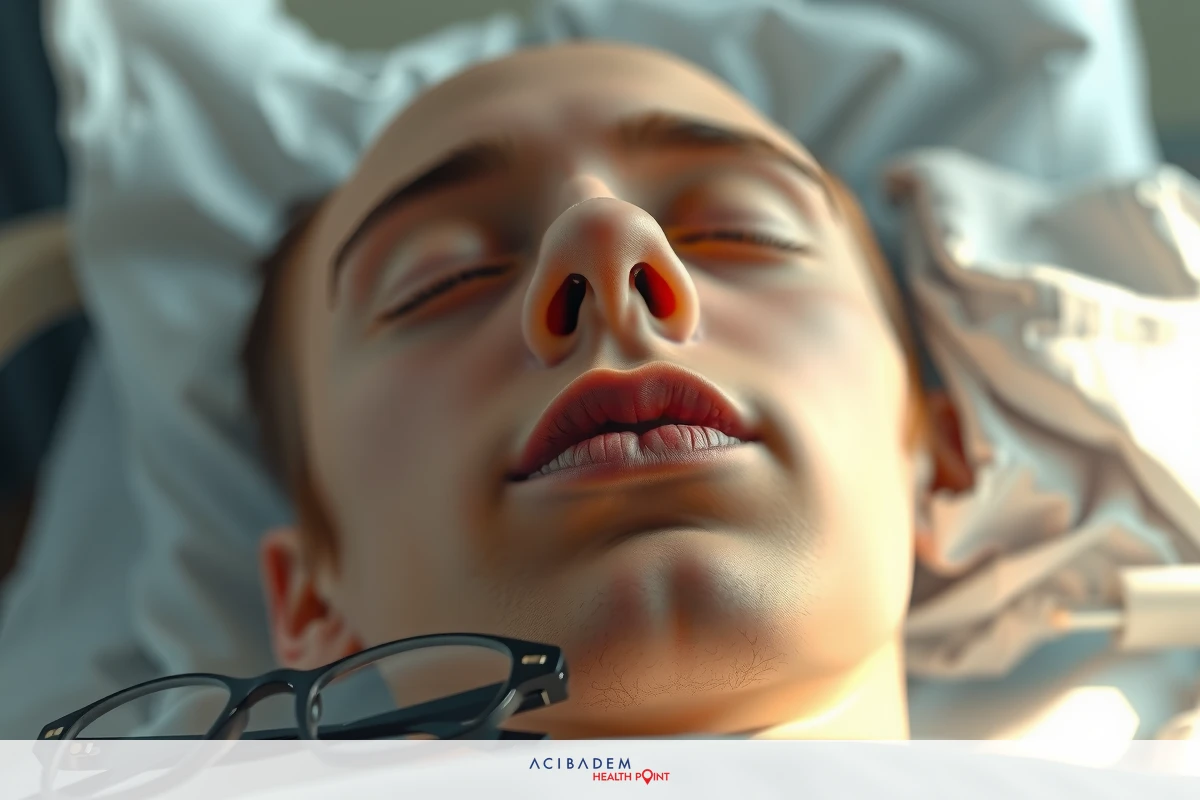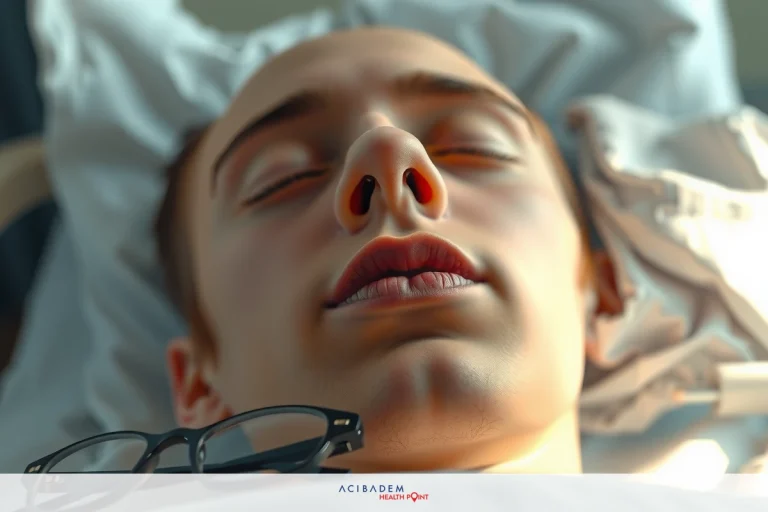When Can I Wear Eyeglasses After Rhinoplasty
When Can I Wear Eyeglasses After Rhinoplasty The aftermath of rhinoplasty often brings with it an array of questions. A particular concern for those who wear eyeglasses is figuring out when it’s safe to place them back on their newly operated noses. This worry stems from the potential pressure that glasses could exert on the healing nasal structure – a situation one would want to avoid.
Guidance from your surgeon plays an essential role in navigating this recovery phase post-rhinoplasty. They offer personalized advice based on individual healing progress and comfort levels. The return to wearing eyeglasses isn’t usually immediate; rather, it follows a gradual transition period where certain precautions need adherence for optimal outcomes.
Understanding these aspects can be instrumental in ensuring smooth recovery and satisfaction with the results of your rhinoplasty journey. With accurate information at hand, concerns about returning to normal activities like wearing eyeglasses will become less daunting.
Recovery Timeline
In the immediate aftermath of rhinoplasty surgery, wearing eyeglasses might seem like a distant idea. The initial recovery period is critical for proper healing and shaping of your new nasal structure. It’s during this time that the nose is most susceptible to external pressure or disturbances, hence avoiding eyeglasses becomes essential.
The first two weeks post-surgery are typically marked by significant swelling and bruising around the nose area. You’ll notice these symptoms gradually reduce as healing progresses – an encouraging sign towards normalcy. However, even with reduced swelling, it’s crucial to continue abstaining from wearing glasses in these nascent stages.
As you move into subsequent weeks following rhinoplasty, tentative steps can be taken towards re introducing eyeglasses into your daily routine under expert guidance. This transition needs careful execution over several weeks or months depending on individual recovery rates and comfort levels. Surgeons often suggest creative solutions like using medical tape to suspend glasses off the nose or opting for lighter frames initially.
Reaching the six-week post-rhinoplasty mark represents a notable milestone in your recovery journey. At this point, you should start experiencing significant improvements, making it more comfortable to wear glasses once again. However, it’s important to keep in mind that the timeline for each individual’s recovery may vary. Before making any decisions regarding the use of eyewear after rhinoplasty, it is crucial to consult with your surgeon to ensure the best and safest course of action.
Heading past the three-month mark signifies entering final stages of recovery where minor residual swelling continues its slow resolution over many more months. Here again, regular check-ins with your surgeon will keep you informed about appropriate timelines associated with resuming full-time use of eyeglasses.
Thus understanding this general timeline not only helps set realistic expectations but also prepares you for managing various phases throughout recovery from rhinoplasty surgery while keeping focus on eventual goal – safely returning back to wearing those beloved spectacles once more!

Consult Your Surgeon
The journey to recovery after rhinoplasty is a dynamic process with each individual experiencing unique healing patterns. This underscores the importance of maintaining open communication lines with your
surgeon throughout this period, especially when contemplating wearing eyeglasses again. After all, they possess an in-depth understanding of your specific case and can offer tailored advice based on observed progress.
Timely consultations enable your surgeon to monitor healing trends actively and provide guidance that aligns perfectly with your current situation. For instance, they might propose alternative ways of wearing glasses or suggest waiting for another few weeks if healing isn’t progressing as expected. It’s through such interactions that complications arising from premature pressure exerted by eyeglasses on the nasal structure can be effectively mitigated.
In addition to managing physical aspects of recovery, consulting regularly with your surgeon also helps address any anxieties or doubts you may have regarding resumption of normal activities like wearing glasses post-rhinoplasty surgery. Their reassurances backed by professional expertise can significantly alleviate concerns about timing and safety issues associated with eyewear during recovery phase.
Your journey through rhinoplasty extends beyond just surgical intervention; it’s a comprehensive process involving pre-operative planning, surgical execution, and most importantly – post-surgical care guided by expert consultation at every step along the way. Thus engaging proactively with your surgeon paves the path towards optimal outcomes including safe return to using those much-needed spectacles!
Gradual Transition
Rhinoplasty patients are often eager to regain their pre-surgery lifestyle, including the simple act of wearing eyeglasses. However, rushing into it without proper guidance can do more harm than good, potentially jeopardizing the end result of your surgical procedure. Hence comes in the vital role of a gradual transition towards wearing glasses post-rhinoplasty.
The concept revolves around introducing eyewear back into daily routine incrementally under strict supervision from your surgeon. Initially, this could mean limiting glasses usage only to essential activities like reading or driving and then gradually increasing wear time as healing progresses. This approach ensures that any potential discomfort or pressure on the nose is minimized through controlled exposure.
Your surgeon may also recommend using lighter frames or even temporary solutions such as attaching glasses to forehead with medical tape – all aimed at reducing direct contact between glasses and nasal bridge during early recovery stages. Over time, these measures can be phased out as tolerance levels improve until finally achieving unrestricted use of regular eyeglasses again!
Understanding and following this process diligently underscores an important truth: reintroducing eyeglasses after rhinoplasty isn’t about abrupt change but rather a slow-and-steady journey marked by patience and perseverance guided by expert advice every step along this transitional path.
When Can I Wear Eyeglasses After Rhinoplasty: Frequently Asked Questions
When can I start wearing eyeglasses after my rhinoplasty procedure?
The timeline for reintroducing eyeglasses varies from person to person, depending on their individual healing progress. It is generally recommended to refrain from placing glasses in direct contact with your nose for a minimum of six weeks following surgery. This period may be extended based on the guidance of your surgeon, so it is essential to maintain regular consultations with them.
Will wearing glasses cause discomfort or complications in my recovery process?
If not managed properly, pressure from eyeglasses could potentially disrupt the healing nasal structure leading to discomfort or even complications. That’s why surgeons recommend a gradual transition towards regular use of glasses alongside creative alternatives like lighter frames or suspending them off the nose initially.
How will I know when it's completely safe to wear glasses regularly as before?
Your surgeon will guide you through this decision making process by monitoring your recovery progress closely. They'll provide personalized advice about when it’s appropriate to resume unrestricted use of eye-glasses based on observed improvements in tolerance levels over time.
What if I have no option but to wear heavy prescription glasses right after surgery due to poor unaided eyesight?
In such scenarios, discuss this concern with your surgeon prior to surgery so that they can suggest suitable solutions like using medical tape for supporting glasses off the nose until sufficient recovery allows safer wear.











